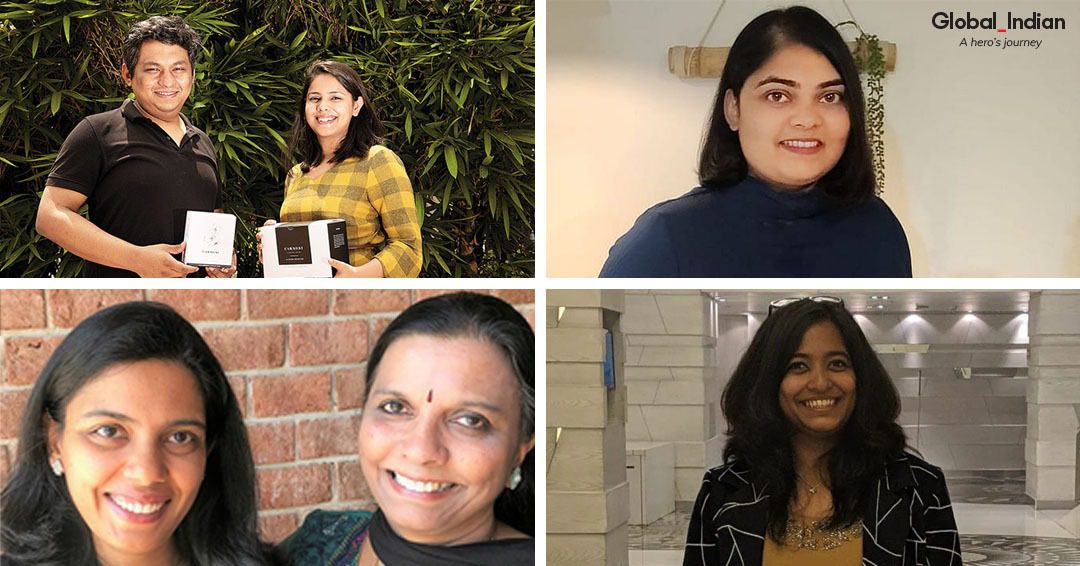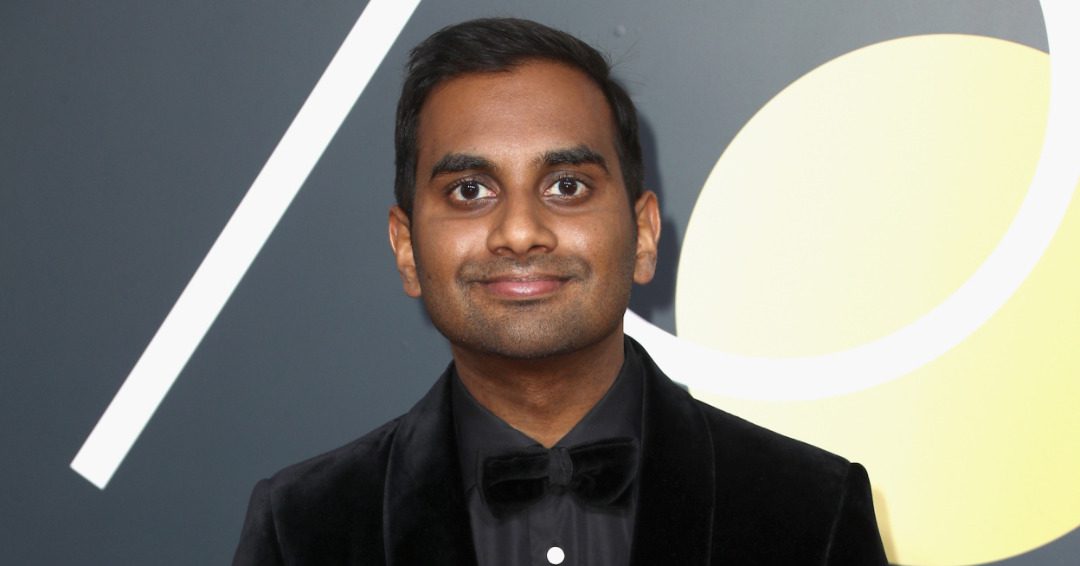(September 6, 2021) Agriculture in India has often left farmers short changed. The reasons for this have been many: low landholding, lack of modernization, taxing loans from an informal setup, unpredictable weather conditions, demand-supply issues, and also the lack of technology. However, over the past few years, agritech startups have been making inroads into the agriculture sector trying to fix problems, one at a time. With better smartphone and internet penetration across certain rural areas in the country, these startups have been providing solutions to everything from innovative ways of disbursing loans, technology to test soil quality and predict which crops will be in demand the next season to farm to fork brands and B2B agri marketplaces.
Global Indian turns the spotlight on some of the country’s most promising agritech startups.
WayCool
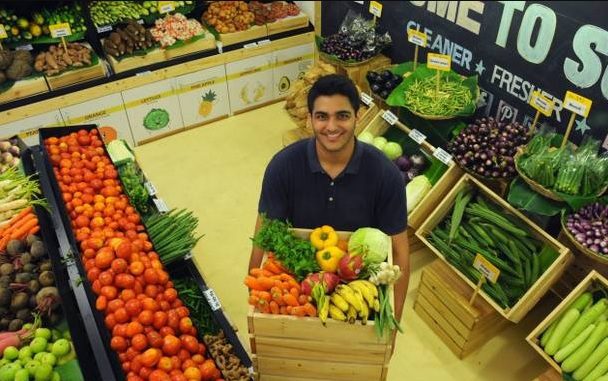
Sanjay Dasari co-founded WayCool with Karthik Jayaraman
Launched in Chennai in 2015 by Karthik Jayaraman and Sanjay Dasari, WayCool has been pivoting the farm-to-fork B2B model. One of the country’s fastest growing agritech companies, WayCool makes almost 90% of its revenue today from leading clients such as the Taj Group of Hotels. It’s aim has been drive social impact while transforming India’s food economy and has built a large food development and distribution services company by positively impacting over 500,000 farmers so far. WayCool works across the spectrum in agriculture: product sourcing, food processing, branding and marketing, last mile distribution and most importantly by providing farmer inputs on essential factors such as soil quality, best crops to invest in etc.
The company currently handles over 350 tonnes of food products each day across 19,000 clients across more than 50 regions in India. Earlier this year the startup raised $20 million in a fresh round of funding from existing backers such as Lightstone, Lightbox Ventures, and Netherlands-based FMO Development Bank and its valuation is currently close to $200 million.

Agrowave

Anu Meena
Launched in Gurugram in 2017 by IIT-Delhi alumna Anu Meena, Agrowave is a farm-to-fork mobility supply chain using an integrated network of smart route mapped mobile pickup stations at farm gates. It reaches out to small and marginal farmers in India’s interiors, buys produce from them and sells it to businesses such as restaurants, cafes, hotels and retailers. Agrowave procures fresh produce from regions such as Palwal, Sonipat, Sawai, Nuh, and Alwar Sambhal. Meena, who as a child had watched her grandfather struggle to sell his produce, wanted to bridge the supply chain gap in the agri sector and help farmers get a fair price for their produce by eliminating middlemen. Using technology to build a sustainable supply chain Meena launched the startup with zero investment and worked on the business model and technology alone. Her project grabbed investor interest and the startup raised funding from Daffodil Software in 2017. Last year, it raised close to $500,000 in funding from US-based investor Sekhar Puli. Today, the company clocks in a revenue of close to ₹25 million each month.

Fasal
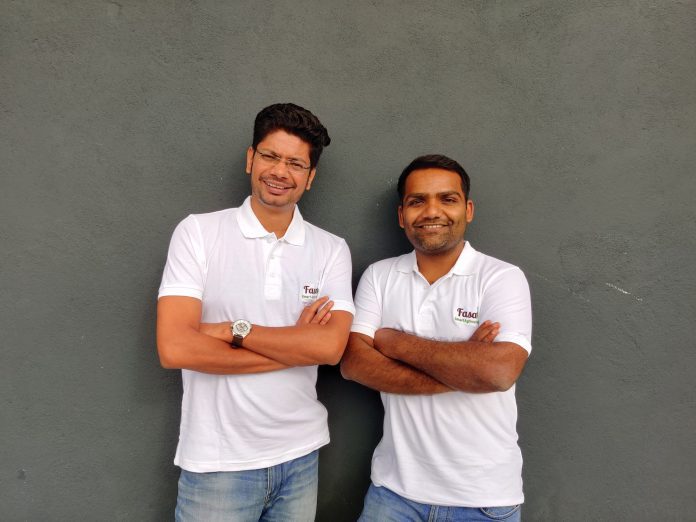
Shailendra Tiwari and Ananda Verma
Founded in 2018 in Bengaluru by Shailendra Tiwari and Ananda Verma, Fasal uses IoT to take the guessing game out of farming and helps farmers run on auto pilot mode by helping them monitor their farms anytime and from anywhere. It helps measure macro and micro conditions including soil moisture, rainfall, temperature and various environmental factors to help farmers make informed crop choices. The startup gives farmers Fasal Sense, an IoT sensor device, which collects data that then relies on artificial intelligence and data science to calculate on-farm predictions about disease, pests and recommendations on the farmer’s phone in different languages. So far, Fasal has raised $1.9 million in funding, including $1.6 million in a seed round led by Omnivore and Wavemaker Partners in 2019.
![]()
CropIn
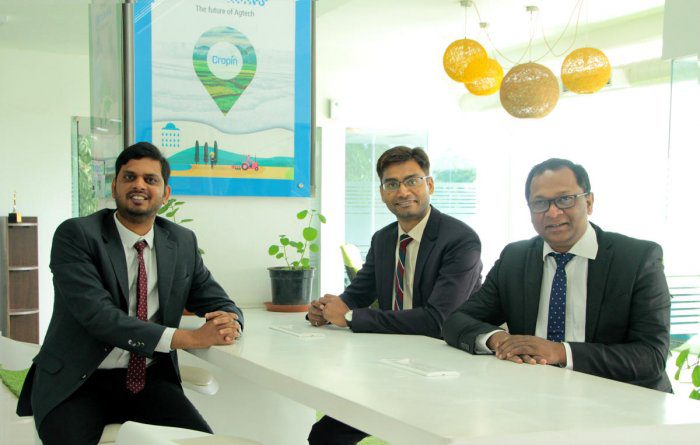
Krishna Kumar and Kunal Prasad
Founded in 2010 by Krishna Kumar and Kunal Prasad, CropIn is headquartered in Bengaluru and enables agri enterprises to maximize per-acre value through data-driven solutions. With its smart SaaS-based solutions to global agribusinesses, CropIn aims to digitize the farm and farmer. One of the many solutions it provides is Farm Management Solution, and helps farmers and other stakeholders improve productivity, efficiency and sustainability of crop chains. The platform also helps maintain food safety standards which sometimes get overlooked in conventional farming. So far, the company has impacted 13 million acres and four million farmers worldwide through its platforms. The company recently raised $20 million in a series C round led by ABC World.


